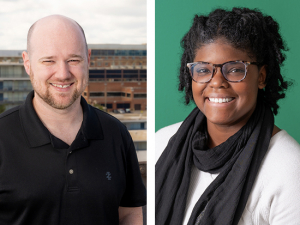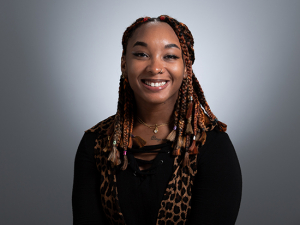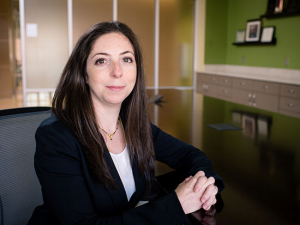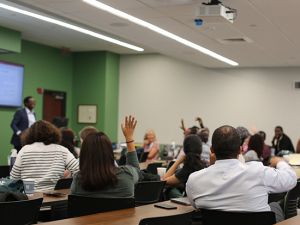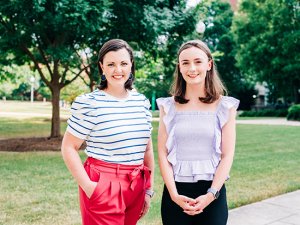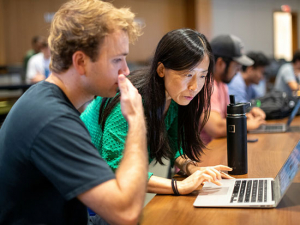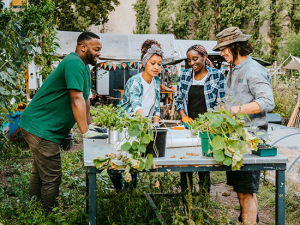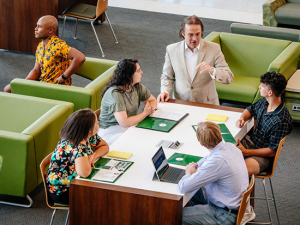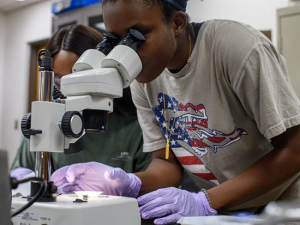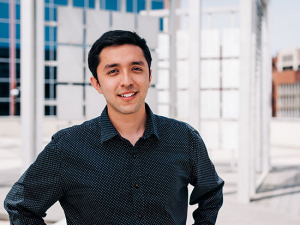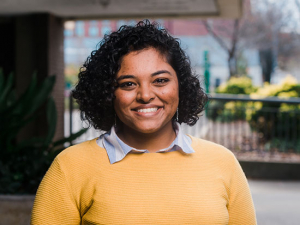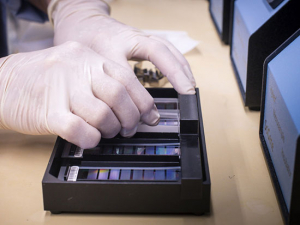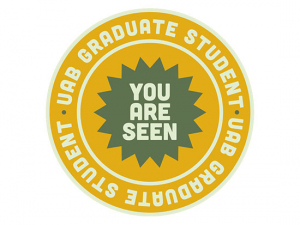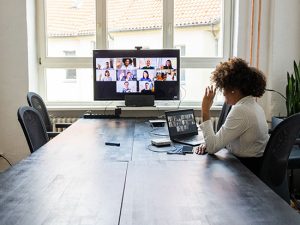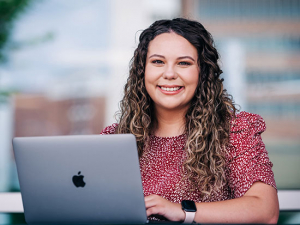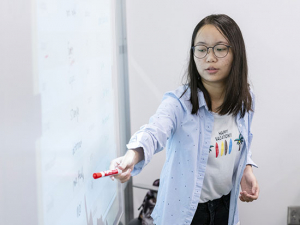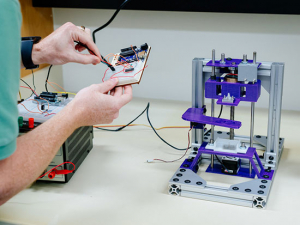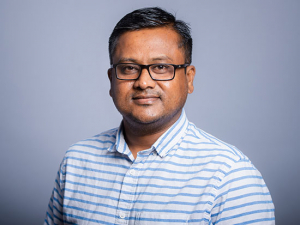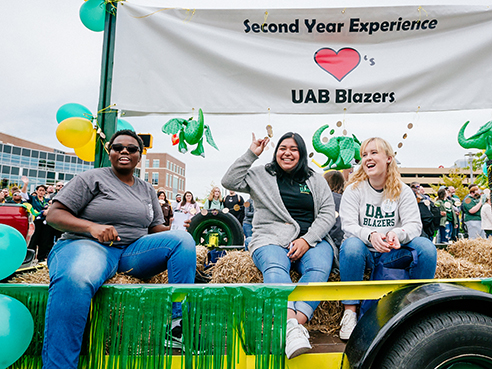 A unique challenge confronts rising sophomores entering campus this fall: What does the second year of college look like when your first year was so nonconventional?
A unique challenge confronts rising sophomores entering campus this fall: What does the second year of college look like when your first year was so nonconventional?
Freshmen are the focus of special welcoming initiatives, while third- and fourth-year students likely are on an academic path, developing interests and planning post-undergraduate ventures. In contrast, sophomores can be rudderless in the best of years, so the Second Year Experience (SYE) team was launched in the fall 2017 to engage, support and encourage them to develop a personal identity and purpose.
Those goals are even more important now, says Brian Johnson, director of Residence Life and Second Year Experience.
“We have a population of first-year students that didn’t experience that traditional first year of college due to the pandemic,” Johnson said. That means no first home football games, no homecoming traditions and no conventional engagement events.”
|
“How do we form a second-year perspective when we have students who simply just want a traditional college experience for the first time?” |
Classes moved fully online in March 2020 during remote business operations, and as the university transitioned into modified business operations in the following months, UAB held hybrid classes during the fall 2020 and spring 2021 semesters. All university-sponsored travel was canceled, as were all in-person events — that meant no traditional on-campus activities such as the annual Gurney Derby or the UAB Expo.
“How do we form a second-year perspective when we have students who simply just want a traditional college experience for the first time?” Johnson said. “The Student Affairs division as a whole is thinking about that as we plan various activities for students on campus.”
Planning new programming
SYE plans to provide much of its signature programming that was put on hold during the pandemic — the annual Welcome Back Bash, Halfway There Celebration and End of Semester social, for starters. They also plan to host panels featuring upperclassmen from various schools and majors to help second-year students get a better understanding of academic paths from those already traveling them.
|
“COVID pushed us to be more virtual and engage students who are fully online or who don’t come to campus that often.” |
Johnson says SYE also is working on an onboarding module for all second-year students to discuss the program and highlight upcoming events — an idea that sprung from lessons learned during the pandemic.
“We’ve often talked about how to engage UAB’s online students in the best way,” he said. “COVID pushed us to be more virtual and engage students who are fully online or who don’t come to campus that often.”
SYE is exploring two new in-person initiatives: engagement mixers for student groups such as INTO, Student Involvement and Leadership and Student Multicultural and Diversity Programs, among others, and a “Desserts with the Deans” concept, where second-year students can meet senior leaders in schools and colleges. Both initiatives likely will be held at various times throughout the day and evening to accommodate students with nontraditional course schedules — another lesson learned during the pandemic.
“Second-year students are about to enter their junior year of courses, which means being admitted to an academic college,” Johnson says. “Those students are questioning ‘is this the right major for me?’ So how can we help them make those decisions? What better way to do that but to have an informal conversation with leadership over dessert, asking the questions they want to ask and engaging with people from that area.”
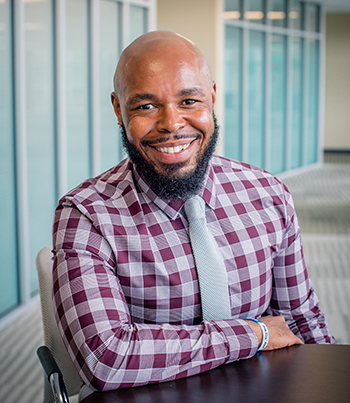 Brian Johnson, director of Residence Life and Second Year ExperienceSYE will provide programs on hot topics such as financial literacy, career readiness, professional development, finding internships, resume-building and work to resurrect its Navigator program, which pairs students with faculty and student mentors who can help them navigate the second year at UAB.
Brian Johnson, director of Residence Life and Second Year ExperienceSYE will provide programs on hot topics such as financial literacy, career readiness, professional development, finding internships, resume-building and work to resurrect its Navigator program, which pairs students with faculty and student mentors who can help them navigate the second year at UAB.
A unique student experience
Johnson encourages UAB faculty and staff to remember just how different the first year at UAB was for these second-year students compared to those in past classes. They didn’t have the opportunity to participate in traditional first-year activities like New Student Convocation or Connect Fest, visit the Writing Center in person or drop in for tutoring at Vulcan Materials Academic Success Center, most of which were offered in virtual formats.
“How many students will know how to navigate UAB as a campus?” Johnson questioned. “I think we’ll see a number of students not knowing how to navigate our university from a resource and engagement perspective — or a physical one.”
He cites residence halls as another example of how things might be different for these second-year students: During the pandemic, no visitation was allowed in residence halls, and the group gathering areas such as study rooms, lounges and lobbies were off limits to students to prevent the spread of COVID-19.
“Our infrastructure and our residence halls were built for social engagement, to foster connections and relationships,” Johnson said. “The layout of the physical space was built to foster communal gatherings, with lounges and meeting spaces. For most of our newer students on campus, it’s really going to be about getting in the groove of what it’s like to live on campus and be engaged.”
| "As professionals, how can we help them be more comfortable? How do we help them find a fulfilling college life at UAB? Take that into consideration as they’re moving through their coursework and life on campus post-pandemic." |
His best advice for those who work with students? Encourage them to get involved, specifically with SYE programming uniquely tailored for them.
“There is a population of students who didn’t have a traditional first-year experience —students may not want to engage right away. As professionals, how can we help them be more comfortable? How do we help them find a fulfilling college life at UAB?” Johnson asked. “Take that into consideration as they’re moving through their coursework and life on campus post-pandemic.
“Encourage them to get involved in the co-curricular experience that UAB has to offer. The academic classroom will give you all the technical skills you need and you’ll leave here with a degree, but you still need the intangible skills that catapult you into being a better professional, such as communication, conflict resolution, organization and time management. Those things are taught outside the classroom, by being involved on campus, where you learn those soft skills and how to be the best student and professional you can be.”
